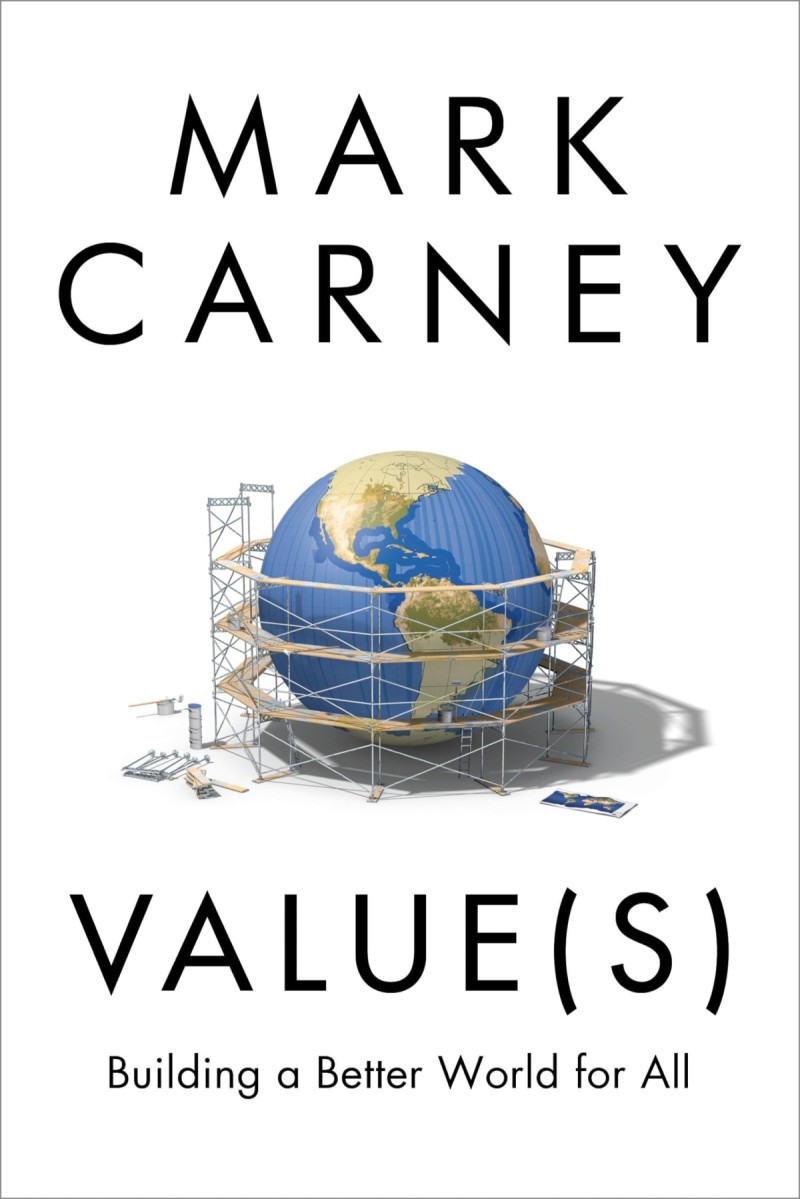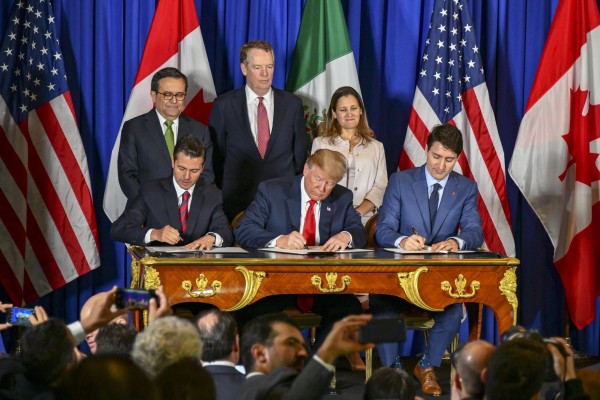I read Mark Carney’s book so you don’t have to
Carney’s commitment to shoring up the neoliberal status quo will only undermine Canada in the long term

Mark Carney, Governor of the Bank of England, speaks during a news conference in London, August 13, 2014. Photo courtesy the Bank of England/Flickr.
Sovereignty has become the single most important issue of the upcoming federal election. Our nation’s response to threats of annexation from our southern neighbour has superseded everything else. President Trump’s aggressive posturing, including his tariff threats, public insults, and general bellicosity has turned Canada’s political landscape upside down. Conservative Party leader Pierre Poilievre has lost momentum, making what once appeared to be an easy win for the Tories into a genuine political contest. The greatest beneficiary of this tumult is the Liberal Party and its newly minted leader, and prime minister, Mark Carney.
With American threats looming large in the public consciousness, Canadians are reflecting on what a possible Liberal victory might mean. Carney could be responsible for far more than maintaining national independence. He is positioning himself to govern a free and independent Canada, and his decisions could shape our lives for years to come.
Fortunately, we don’t have to rely on campaign literature to discern Carney’s vision for the future. The decades he’s spent in both the private sector and the public service, as well as his 2021 book, Value(s): Building a Better World for All, offer insights into the political imagination of the central banker who would be prime minister.
Carney’s storied career falls on both sides of the private-public divide. He cut his teeth with some of the most predaceous financial firms in the business, with years spent working at Goldman Sachs Canada’s investment banking division and the real-estate investment giant Brookfield Asset Management. When he moved into the public sector in 2004 he joined the federal Department of Finance where he orchestrated the sell-off of billions of dollars of public assets.
In 2008, in the wake of the Great Recession, Carney became the head of the Bank of Canada. In 2013 he moved across the Atlantic and became the governor of the Bank of England. Seeing which way the wind was blowing, Carney built himself a reputation as a strong advocate for a well-regulated monetary system that prioritizes low inflation and market stability.
As a central banker on both sides of the pond, Carney did his part to maintain a low-friction status quo suitable to the long-term interests of big business. He writes with pride of his accomplishments and believes firmly in the basic soundness of our economic system and the role central banks play as a stabilizing force within it.

Although he has since distanced himself from even this milquetoast response to climate breakdown, Carney’s limited answer to global warming is emblematic of his approach to politics generally. He truly believes that the status quo just needs a few tweaks on the margins and everything will be just fine.
Carney freely names the flaws inherent in neoliberal capitalism: environmental catastrophe, the formation of oligopolies, increasingly turbulent markets, unequal exchange, world-historical levels of income inequality. He is also able to articulate their destructive effects on the lives on individuals and the broader social fabric. But his solutions are incapable of addressing the root of the problem.
When he talks about wealth inequality, he avoids discussion of closing tax loopholes and increasing taxes on the rich—in fact he advocates for lowering taxes on so-called start-ups. When he talks about stagnant incomes, he’s silent about raising the minimum wage and increasing the power of unions. When he talks about decaying social infrastructure he has nothing to say about boosting public spending on health and education. When he talks about the dangers of a market dominated by oligopolies, he refuses to talk about using the power of the state to break up large companies that have fallen into price-gouging and rent-seeking behaviours.
Instead, he advocates for policy solutions designed to maintain and expand the power and wealth of the ultra-rich. Carney wants to see more public money funnelled to the private sector. He believes the state should fund real estate and tech companies, that Canada should “[m]aximise government investment both to support short-term economic activity and to build the physical, digital and natural capital we need.”
He believes the power of the state should be used to support small and medium-sized enterprises, or SMEs, to drive innovation and create general prosperity. But here too there is a jarring policy oversight. Carney makes no mention of the antitrust legislation that would be necessary to prevent successful SMEs from being absorbed by national and international corporate behemoths.
For Carney, the idea of big business getting bigger isn’t cause for concern. “It may be unfashionable to support wealth creation, but it is essential if we are to address our many challenges.” From his perspective, the problem isn’t wealth accumulation, the problem is that the people who have accumulated that wealth are behaving poorly.
As the title of Value(s) suggests, Carney’s response to the excesses of capitalism is moral scolding. He believes that “individuals and their firms must rediscover their sense of solidarity and responsibility for the system. More broadly, by rebasing valuation on society’s values, we can create platforms of prosperity.” This is the core of his vision for a better world. He sincerely believes it is possible to create an ethically responsible brand of neoliberalism.
Ultimately, Carney has no interest in challenging the power of corporate oligarchy; instead, he wants to use market incentives to encourage oligarchs to act in a pro-social fashion. He believes the excesses of capitalism can be reigned in by creating the right measures and metrics and benchmarks. Carney pitches environmental, social and governance (or ESG) assessments designed to give companies the opportunity to hold themselves accountable to socially and environmentally responsible KPIs. He wants to make the negative externalities of capitalism visible so investors can have the opportunity to make values-based decisions about where they place their money. He likes B-corps, and enterprises on a mission. He sincerely believes these ethics-washing branding exercises are capable of driving real change—despite the fact that such corporate governance metrics have been around for decades and the polycrisis has only accelerated.
Carney looks squarely at the expanding and multiplying catastrophes of late-stage capitalism and remains unshaken in his conviction that structural changes are unnecessary. He sees a world on the brink and wants to do nothing more than tinker with the finer points of public policy. This should not surprise us. Carney’s career is defined by small adjustments; a 0.5 percent increase in interest rates, a rewording of lending regulations—these fine tunings might fulfill the role of a central banker but for a prime minister this tinkering is not enough.
Carney’s vision for the future of Canada is an oligarchy of better-behaved oligarchs. Of a neoliberalism with ‘values.’ A capitalism that chooses to be sensible and responsible. A corporate technocracy that resolves the twin crises of declining living standards and environmental catastrophe without slowing capital accumulation.
“To build a better tomorrow, we need companies imbued with purpose and motivated by profit,” Carney writes. “Their activities will produce a shared value that accrues to the shareholders as well as to employees, customers, suppliers and the wider community.”
This is both inadequate and impossible.
Canada needs a prime minister capable of wresting power back from the forces of capital and wielding that power in the interests of citizens. We need to tax the rich, close tax loopholes, imprison tax evaders, introduce wealth caps, nationalize corporate wrongdoers, end the ownership of our media by hedge funds and billionaires, and insist on the public ownership of key industries and resources. We need a prime minister who will use those increased revenues to radically reinvest in health, education, public housing, elder care, and economic development.
Carney’s commitment to shoring up the neoliberal status quo will only undermine Canada in the long term—and when he’s through we will be even more vulnerable to far-right demagogues like Pierre Poilievre.
Canada deserves better.
James Hardwick is a writer and community advocate. He has over ten years experience serving adults experiencing poverty and houselessness with various NGOs across the country.










